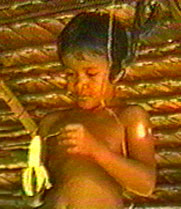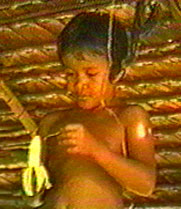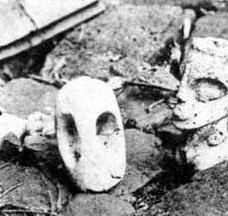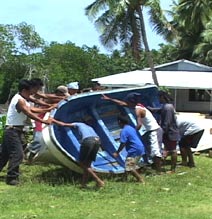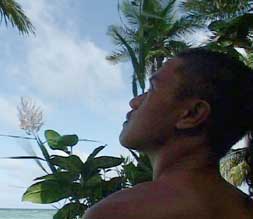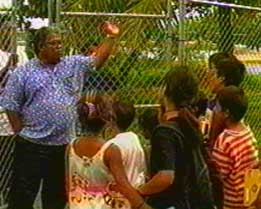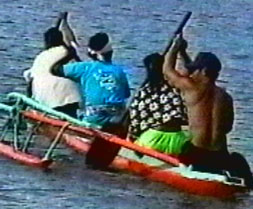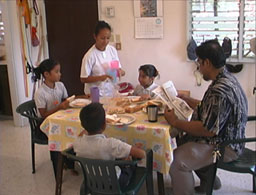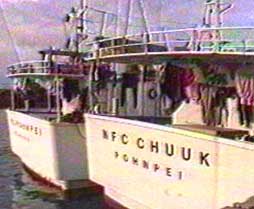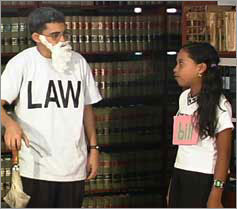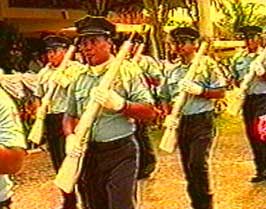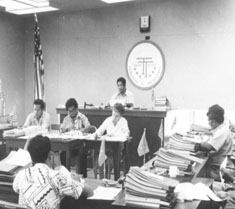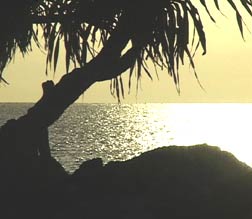MicSem Media Productions
Island Government: Making it Work
2005 (46:13 mins) Island Topics #45 CULTURAL GOVERNMENT
What does good government mean for island nations in the Pacific? This video is an extended conversation on that very question punctuated by mini-dramas that underline some of the tensions between government and culture.
The march to self-government was a long and arduous process lasting for a decade and a half and resulting in the new independent nations of Micronesia. What's the point of this exercise, one of the main characters asks, when people could have continued to rely on their traditional authority systems? Why is modern government necessary for islands that got along so well without it for hundreds of years? The answer: to provide those services, like schools and hospitals, that have become necessary in our day, not to mention regulating life in an increasingly complicated world.
Good government is supposed to take care of the people, ALL the people. Yet, in small societies there are always relatives and a small network of friends that demand preferential treatment. Rules should be enforced evenhandedly by a government. But how do you do this in a small community, or work place, where everyone is compelled to get along? Good government demands oversight by the people it serves–oversight that was maintained to a surprising degree even in the old days when chiefs ruled. But how does a citizen get access to the information needed when government offices seem to deny this for fear of damaging elected officials?
This 45-minute video dramatizes these tensions in a way that all islanders can relate to. The video asks the question: What does good government mean for us and how can we progress towards it?
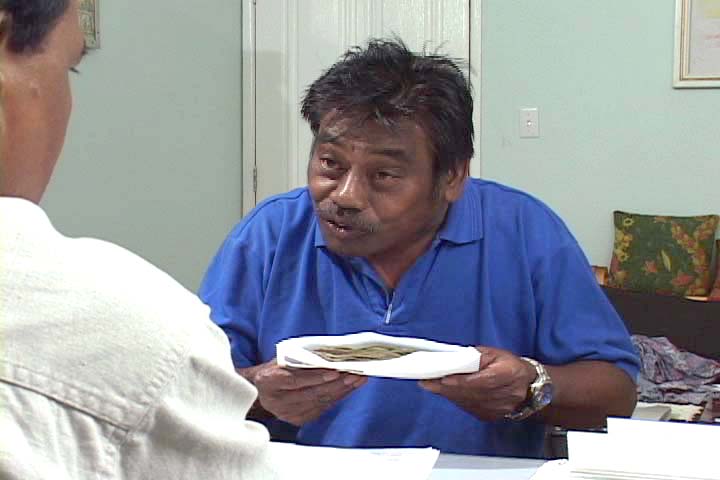
 |
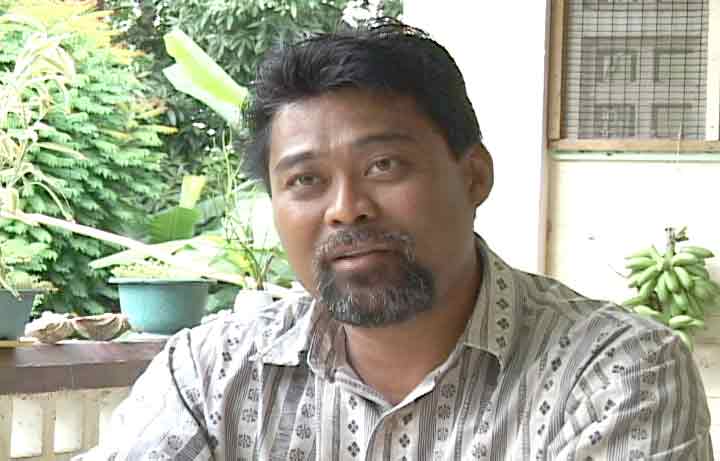 |
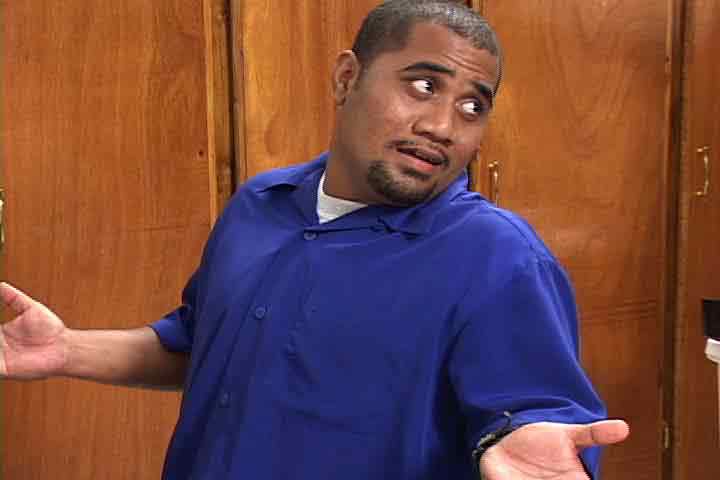 |





